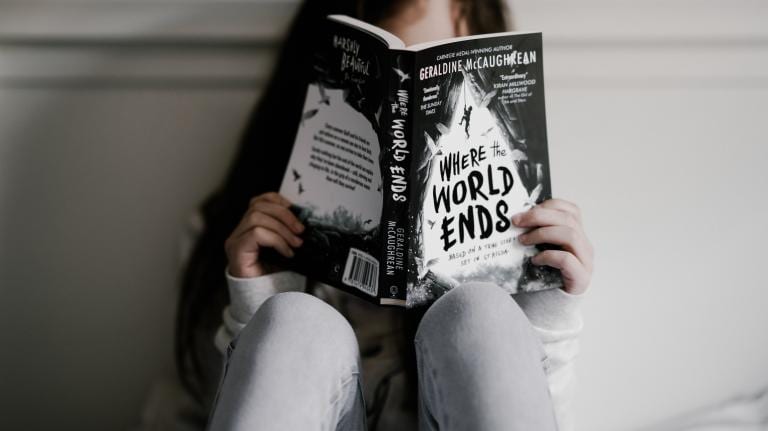There are all sorts of narratives out there. Stories we tell ourselves. Stories our family and friends tell us. Stories from society and advertising.
As far as we can tell, humans have always been fascinated with stories. The cave men drew stories on the walls. Jesus taught with parables more than any other method. Today, we have television and movies. Stories catch our imaginations, but they do much more than that. They tell our truths.

Our increasingly individualistic culture encourages us to choose our story. In a myriad of narratives, we have a choice about which story we believe. Since what we believe about ourselves shapes who we become, the stories we choose are vitally important. Choosing our narrative is important to the wellness of our character, community, and culture. We must do so with supreme caution and self-aware intention.
Truth
At first glance, choosing a narrative seems simple enough. We choose whatever is best for us. We pick the narrative that makes us happiest. The one that makes the murky path of life easier to navigate. We choose the narrative that casts us as the hero.
We recently watched an episode of a reality TV show and, during a competition, one contestant cheered for another contestant. A third member of the cast was angry that the first was cheering for someone who was not him. He described the incident as “being attacked”. We hold so closely to the narrative of our own fame and prosperity that we make enemies of everyone around us.
The major problem with this approach to narrative choosing is that it is not always true. Our world is becomingly increasingly estranged from the truth. We repeat what we celebrate. We believe the stories we repeat. And over and over again, this is our refrain: I am not to blame; I am justified in my feelings; Anyone not completely for me is completely against me.
The truth drifts further and further away. We use phrases like “perception is reality”. We are convinced that the narratives we believe are more true than facts. More real than reality. And in a world full of individuals, if we are all believing different stories, all sure we are the hero of the story, the conflicting narratives inevitably lead to hurt, mess, and confusion.
Values
We are so deeply ingrained in this way of thinking, it is hard to see a way out. Experts at self-deception, we tell ourselves that our own good is The Good. How could the truth hurt? How could the truth cost me something? I’m the hero!
The reality is, the truth does hurt. Even heroes go through that. Truth ought to be the guiding light of our narrative. It should be the measure by which we select our stories. How we feel, what we think, and even what we believe are elements of the truth. But they are not The Truth. They are not the end of the narrative.

People in this world are desperate for meaning. We are longing to discover purpose. Deep inside all of us is a desire for belonging, to participate in community, to help others, and to discover the best version of ourselves. Unfortunately, we have an addiction to shortcuts. We want the flash fiction narrative rather than the epic. We don’t want to suffer to achieve our longings. But suffering is a necessary part of purpose. Because it hurts when we don’t understand, when we are out of control, and when the whole world does not revolve around us. It hurts when we can’t force our way, which leads us to finding ways better than our own.
As we choose the narratives we adopt, we must be careful how we are measuring the stories. How truly do they align with our values? Are we believing in the shortcuts and superficiality so prevalent in this world? Or are we choosing a narrative that understands and accepts the necessity of community and the weakness of our understanding? What we choose will not shape what is true, as much as we try. What we choose will affect our ability to participate in what is true…or fight against it.












